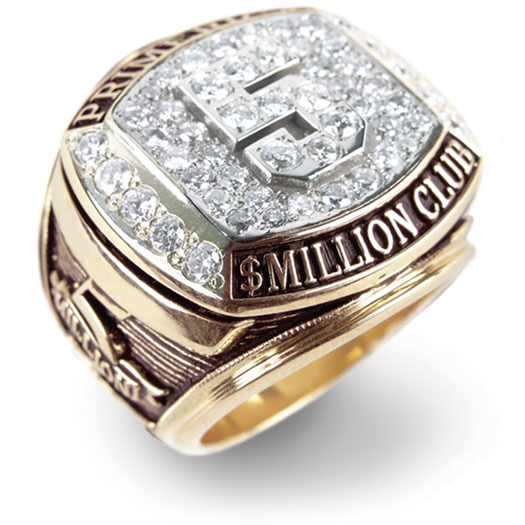“The entrepreneur in us sees opportunities everywhere we look, but many people see only problems everywhere they look. The entrepreneur in us is more concerned with discriminating between opportunities than he or she is with failing to see the opportunities.” – Michael Gerber
To double your money every three years, you need an average yearly profit of about 26 percent. Does 26 percent seem like an easy target? Or a hard one?
When I look at my own investing track record, here’s what I see.
- Stocks: I buy mostly no-load index funds and some blue chips. On average, over the years, I’ve done about as well as the market has done over the last 100 years – i.e., about 10 percent I do believe I could do better with stocks. I know plenty of people who do, like some hedge fund managers. If I followed their advice consistently and carefully, I believe I could get 15 percent to 18 percent a year on my stocks. That’s not enough to double my money every three years, but it could still make me rich over time.
- Bonds: I buy AAA munis and I don’t trade them, so I get market rates. Over the past 25 years, I’ve probably averaged about 4.5 percent – which, at my tax bracket, amounts to about 7 percent before taxes. Seven percent doubles every nine years. That won’t increase my wealth significantly, but it will protect it from stock market losses and (usually) from inflation. I have about 15 percent of my liquid investments – 15 percent of my net worth – in bonds.
- Options: Never tried them.
- Currency Trading: Never did it.
- Rental Real Estate: I’ve been doing this for about 20 years. I’ve gotten better with experience. Counting my early mistakes, I’ve averaged about 18 percent I am very happy with my rental real estate investments, and I think that by applying what I’ve learned I can do a little better in the future. I wouldn’t expect to earn 26 percent a year in real estate, though.
- Buy-Build-and-Flip Real Estate: I did not get into this game. Some people made millions during the 1990s – making 50 percent or 100 percent on individual transactions almost seemed “normal.” As prices became insane, many smart investors pulled out. Some achieved average returns of about 30 percent to 35 percent per year, annualized over 10 years, but I don’t believe we will have this opportunity again for a long time. For now, I’m not expecting 26 percent on these investments.
- Passive Real Estate Investing: I’ve been investing in a friend’s real estate deals for about 15 years. The returns have been up and down – and I’ve had a chance to learn a lot about the development business during that time – but overall my ROI with him has been about 14 percent
- Tax Lien Certificates: By investing in Tax Lien Certificates, I have earned returns of 16%, 18%, 24%, or more which are guaranteed by the government. Regardless of what happens in the economy, the returns are guaranteed to remain high. In fact, the only impact a weak economy has on tax-defaulted paper is to provide more opportunities.
- Small Businesses: The one area of investing that has given me the greatest returns – well in excess of 26 percent – has been my investments in small businesses. Although individual businesses that I’m involved in vary greatly (a few lose money, a few linger at breakeven, a few make modest profits, and a handful hit the jackpot), I’ve probably averaged more than a 50 percent per-year return for the first 10 to 15 years on all of my start-up ventures.
Start-up businesses have given me so much – a steady growth of income, a base of wealth that has doubled every three years, the opportunity to get involved in so many other, interesting investments, and a rich and stimulating business life.
So if you were to ask me, “What is the absolute fastest way to become rich?” I’d have to answer: by starting a small business.
That’s my answer. It doesn’t mean it is your answer. You may not want to invest the time, creativity, and energy that it takes to be a successful entrepreneur. You may be retired already and determined not to give up your daily golf game. If investing in your own small business is not for you, then I recommend you look into stock investing and real estate. I don’t think you should expect to safely double your money every three years that way, but you can certainly do as well as or better than I have.
But if you do think you’d like to be an entrepreneur, you will be rewarded for it. Not only can you double (or even triple) your money every three years, you can also enjoy the many other benefits of being your own boss:
- the freedom to choose your own schedule
- the power to create your own products
- the excitement of being fully challenged
- the knowledge that you are providing an income for your employees
My friend Ana W. asked me to help her start a business based on her love of music. She’d been looking over her current retirement plan, and figured out that if she keeps her present job and continues to increase her responsibility and her income, she will be able to have a comfortable retirement in 14 years (at age 67).
That’s not bad. Most people in her age bracket won’t do that well.
But if she puts her energy and resources into creating a successful business of her own, she can look forward to a much better return on her “investment.”
Ana is going to start her new business on the side, working evenings and weekends. She’s going to find a partner to back her, develop her product, and take it to market. When we went over the numbers, it became clear to Ana that this secondary business – if it is successful (and I’m pretty sure it will be) – will allow her to achieve her retirement goals in five years instead of 14, while she is still relatively young.
At that point, she can do whatever she wants to do with the rest of her life.
That’s what a business can do for you.
Think about your own financial situation. Are you okay as you are – or would it be helpful to triple your money every three years?
If you need that kind of way-above-average ROI in your life, you simply have to consider starting your own business. Don’t quit your day job. Just get something going on the side. You don’t have to invest a ton of money or work endless hours. You can do well starting small.
Here are five proven (and absolutely true, in my experience) secrets of highly successful entrepreneurs that will help turn you into a business-building genius.
Secret No. 1: Don’t spend too much time planning.
When you are entering a market, you don’t know (and couldn’t possibly understand) the hidden problems and challenges you will face. You won’t understand those problems until you make a few mistakes. And you won’t solve them (and go on to making a success of your new business) unless you are capable of changing directions quickly.
Most successful new businesses (probably 90 percent of them) end up following practices that are different than anticipated. That’s why it doesn’t pay to spend too much time and money planning. Do a reasonable amount of noodling. Figure out the big strokes and give yourself a bail-out option. Then go for it. He who can adapt wins.
Secret No. 2: Don’t spend too much money.
The vast majority of business start-ups that succeed do so on a limited budget. Almost none of them have the benefit of venture-capital funding.
The great majority of new businesses are hampered (and enhanced) by flying on empty. People involved in businesses that have limited funds must think harder, work harder, and (most important) sell harder. Their primary initial effort is to bring in the cash. And that’s how it should be. There is only one thing that will surely stop any business in its tracks – and that’s a lack of money. Ironically, limited capital usually means a quicker and stronger cash flow.
Secret No. 3: Get operational fast.
The most common reason for new product/project failures is wasting time getting ready. Between making overlong and expensive business plans, endlessly tinkering with the product, fooling around with focus groups, and second-guessing yourself, it’s easy to let a good product/project lose its steam.
Bootstrappers don’t mind starting with a copycat idea targeted to a small market. Imitation saves the cost of market research – and the start-up entering a small market is unlikely to face competition from large, established companies.
Secret No. 4: Go for the quick cash first.
Contrary to what some business books tell you, successful entrepreneurs admit that they take the fastest route to cash when launching a new venture. They do so because they don’t have a choice. (See Secret No. 2.) After the cash starts coming in, they have the time and funds to improve the product, enhance customer service, and refine operations.
Keep in mind that the best-laid plans are often arrogant. You don’t know for sure how to best serve the market. When launching a new business or product, figure out how you can get to breakeven fastest. This kind of noodling will force you to pay closer attention to the market.
Secret No. 5: Forget about the crack team; you are it.
Successful entrepreneurs don’t hire experts to run their businesses. They figure it out for themselves. When it comes to making your new product/project work, rely on nobody but yourself to make sure it gets done right. It may be stressful and time-consuming to do a lot of extra work, but it will pay in the long run. You will understand the project in an intimate, extremely valuable way.$
[Ed. Note: Ray Buckner is offering a complete blueprint to helping you take control of your financial future with a web-based business that you can operate from anywhere in the world – including a coffee shop, your kitchen table, or anywhere around the world where there is Internet access. Discover how you can achieve the American Dream and your financial independence here. You’ve never seen anything like this before.]
[Ed. Note: Ray Buckner is offering a complete blueprint to helping you take control of your financial future with a web-based business that you can operate from anywhere in the world – including a coffee shop, your kitchen table, or anywhere around the world where there is Internet access. Discover how you can achieve the American Dream and your financial independence here. You’ve never seen anything like this before.]







No comments:
Post a Comment